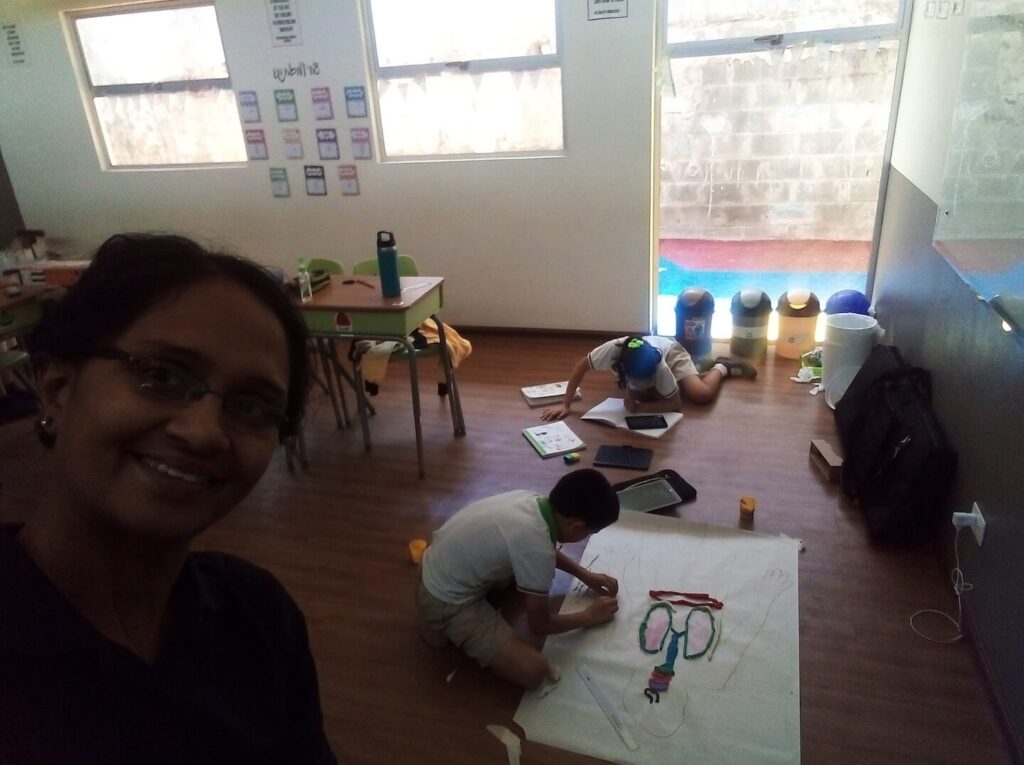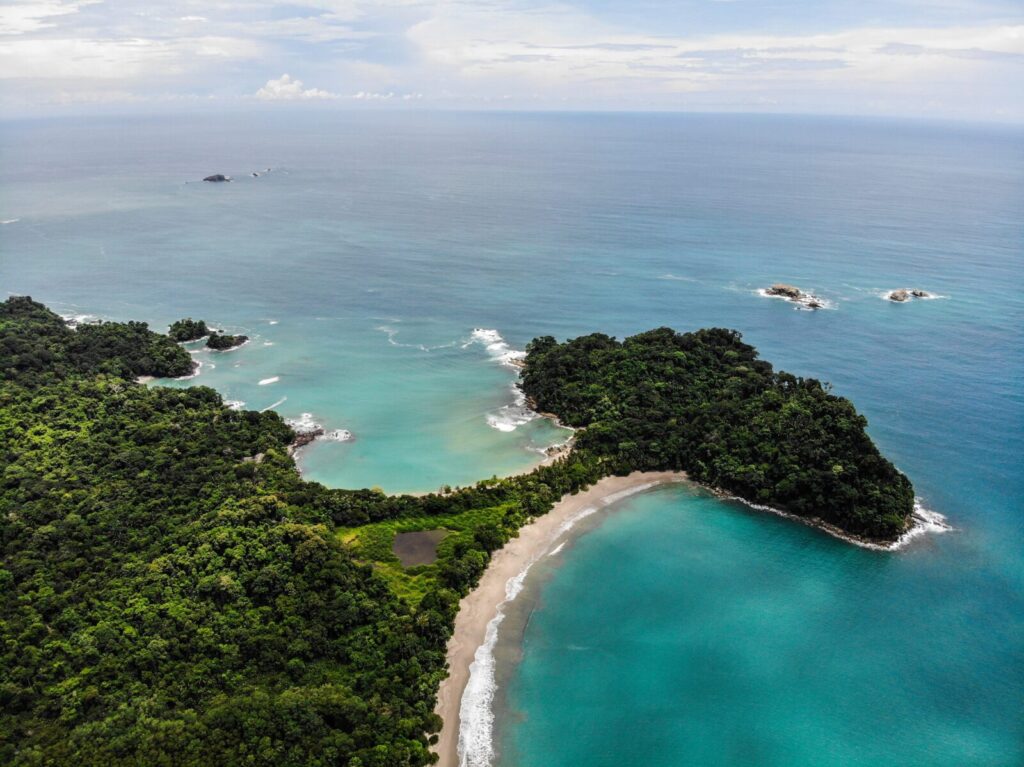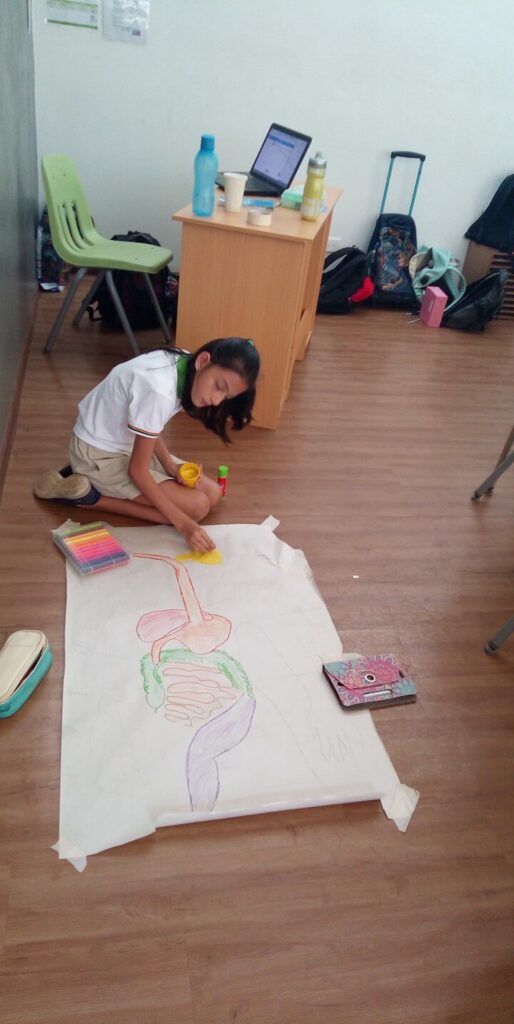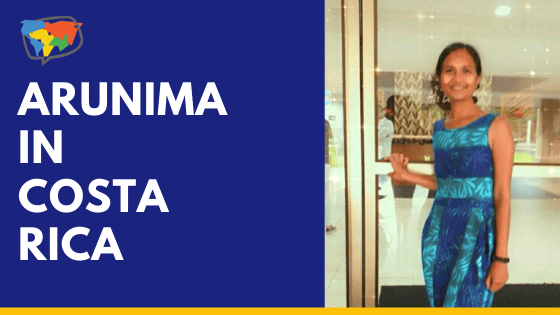Arunima, from India, was a social worker for at-risk children before going to Costa Rica to get a master’s degree in Education of Peace and Conflict Reconciliation. She later took the Bridge 120-Hour Bridge Master Certificate Course then landed a full-time job teaching English near San Jose. In this interview, Arunima shares her teaching experience and cultural insights in this paradisiacal country in Central America, where she has been teaching for the last four years.

Arunima with her primary school students
How did you land your teaching job in Costa Rica?
Upon completing my master’s degree, I applied for a part-time English tutoring work in a language institute. Then, after I was TEFL-certified, I kept applying to private schools. Due to the Bridge certification, I got a full-time job at Kreative Montessori.
Please tell us about your job with Kreative Montessori.
Kreative Montessori is a private primary school in the central part of Costa Rica, very close to the capital city, San Jose. It is bilingual in Spanish and English. My students are first through sixth graders.
The school focuses on striking a balance between the intellectual and emotional development of every child. I teach science and English, and I have to use various hands-on activities to impart the information. The students learn through projects as well as books.
What do you like about teaching in Costa Rica?
Costa Rica is a very culturally rich and diverse country. It is also breathtakingly beautiful. It’s a peaceful country.

Scenic view in Costa Rica
Why did you choose to get TEFL certified and how did you choose the 120-Hour Bridge Master course?
As teaching had become my new profession, I found it appropriate to get the TEFL degree, as it opens national and international doors.
Can you tell us about a memorable experience you’ve had teaching abroad?
I believe Costa Ricans hold high regard for their teachers. It’s part of their culture. My best friends have been my students in the past. They definitely saw a difference in their lives in order to be willing to go the extra mile to help me.

One of Arunima’s students working on a human anatomy project
What recommendation do you have for someone who wants to teach in Costa Rica?
Be open. Accept changes in food, culture, and language, and be willing to learn and be humble.
Since Costa Rica is a Spanish and a very Catholic country, one needs to accept and get accommodated to the food, taste, celebrations, and lifestyle of the people. The culture is very accepting of foreigners as long they can understand the Costa Rican culture and its restrictions. One must also research the meaning of the Pura Vida lifestyle of Costa Rica.

Waterfall in Costa Rica








